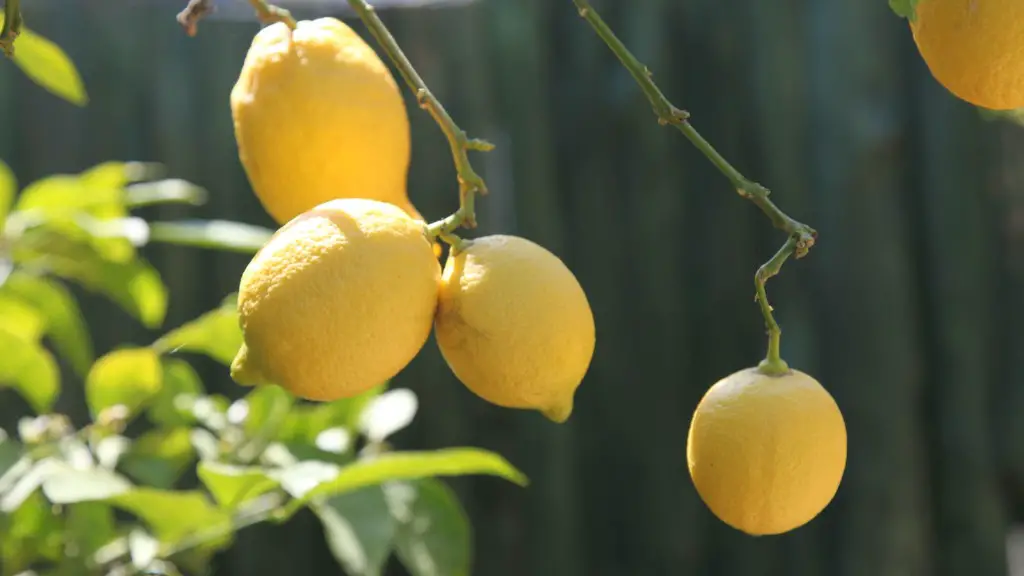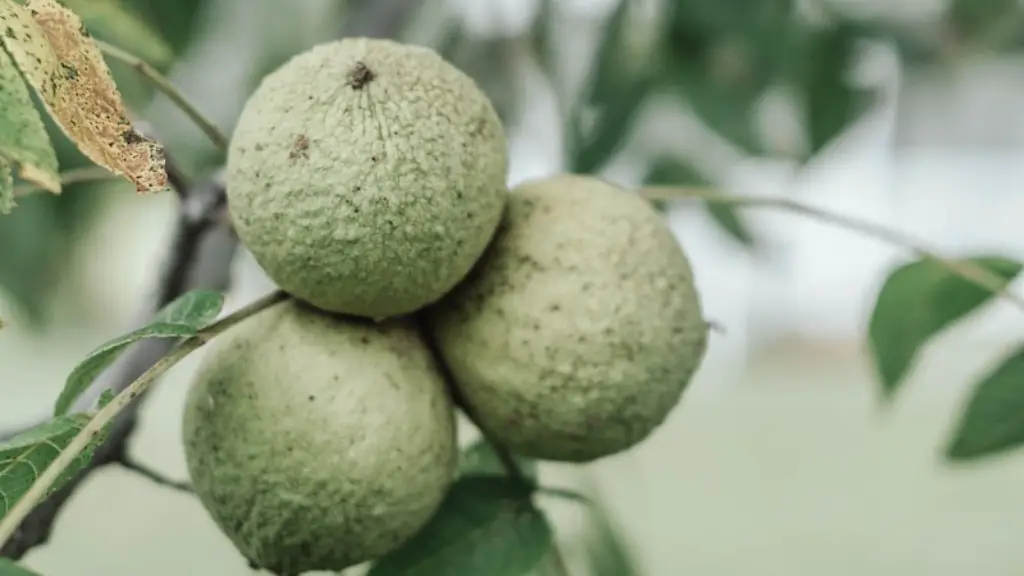It can be concerning to see leaves falling from your lemon tree. Typically, there are several factors that can cause issues with a lemon tree and lead to leaves dropping off. Firstly, the tree’s water needs must be met for it to thrive. If a tree doesn’t get enough water, its leaves will start to drop off. Secondly, a nutrient deficiency could also be causing the leaves to fall. Tree leaves require adequate amounts of phosphorus, potassium, and nitrogen to stay healthy and vibrant. Thirdly, citrus tree leaves are susceptible to pests and diseases. Aphids, spider mites, whiteflies, and mealybugs, as well as certain diseases, can also harm the tree and make it drop its leaves. Fourthly, the tree may not be getting sufficient sunlight. Citrus trees require six to eight hours of sunlight so that their leaves can photosynthesize and remain vibrant. Fifthly, the soil may not be ideal for a lemon tree, leading to the leaves falling off due to lack of nutrients. Sixthly, the lemon tree’s environment may be too humid. Citrus trees prefer temperatures of 20-27 °C and need to be in drier air to keep their leaves from turning yellow and falling.
Temperature Requirements
When it comes to lemon tree care, temperature is critical. These trees thrive in warm and dry climates, not in cold and wet ones. If your tree is not getting enough heat, its leaves will begin to drop off. If you live in a colder climate, you should provide your lemon tree with a warm shelter in the winter and make sure that the temperature in its environment is consistent. It’s also important to shield your tree from extreme fluctuations in temperature, as these can cause the leaves to fall off. Additionally, you may want to consider installing a heat lamp to keep your lemon tree warm in the cooler months.
Sufficient Water
One of the most important factors for a healthy lemon tree is getting adequate amounts of water. Lemon trees need a lot of water to remain hydrated and healthy. During the summer months, make sure that you’re providing the tree with at least 5-7 cm of water per week and 2-3 cm of water per week during the winter months. A good place to start is to water your tree every 2-3 days, depending on the area’s climate conditions. If the tree is not getting sufficient water, it will start to drop its leaves.
Pest & Disease Control
Citrus trees can be affected by pests, such as aphids, spider mites, and whiteflies, as well as diseases, such as the Citrus leafminer. To help prevent issues with pests and diseases, it’s important to keep the area around the tree clean and free of debris. Additionally, use beneficial insects, such as ladybugs, green lacewings, and hoverflies, to help keep pests under control. You can also use horticultural oil or insecticidal soap to remove any pests or insect eggs from the tree’s leaves.
Fertilizer & Soil Requirements
Your lemon tree will also need fertilizer to ensure that it gets the nutrients it needs to stay healthy. Fertilizer for citrus trees should be applied every 2-3 months during the growing season and every three or four months during the winter. Additionally, it’s important to have the soil tested so that you know what nutrients need to be added. The soil should also be well-draining to keep your lemon tree’s root system healthy.
Proper Pruning & Air Circulation
Pruning your lemon tree is also important to keep it healthy and help it to produce more fruit. Prune away any dead branches or suckers, and trim the plant so that air can circulate through the foliage. This will help to keep pests and disease at bay and will keep the leaves healthy. Additionally, pruning can help to shape the tree and will make it easier for the tree to absorb sunlight.
Proper Sunlight Requirements
Lastly, your lemon tree needs sufficient sunlight to remain healthy. Lemon trees need six to eight hours of direct sunlight to photosynthesize and remain vibrant. If the tree isn’t getting adequate sunlight, its leaves may start to turn yellow and fall off. So, make sure that your lemon tree has enough sunlight and it should not have any trouble with its leaves falling off.

